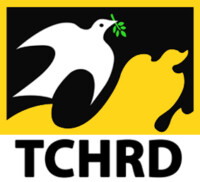The U.S. State Department’s Human Rights Report for 1996, released on 30 January 1997, reports that during 1996 Chinese government authorities continued to commit widespread human rights abuses in Tibet. These included deaths in detention, torture, arbitrary arrest, detention without public trial, prolonged detention of Tibetans for the peaceful expression of religious and political opinions, and intensified controls on religion, freedom of speech and the press.
The reports refers to the forcible suppression of traditional religious practices where they are considered a vehicle for political dissent and the increased persecution of individuals accused of political activism and supporters of the Dalai Lama. Legal safeguards for detained Tibetans, as for Chinese, are deemed inadequate.
The report finds that, in practice, discrimination by Chinese authorities against Tibetans is widespread, especially in the areas of employment. This is exacerbated by government policies which encourage Chinese immigrants to Tibet.
The rapid and ecologically inappropriate growth resulting from government development policies has, the report says, “disrupted traditional living patterns and thereby threatened traditional Tibetan culture”.
In recent years there has been a substantial increase in the non-Tibetan population and the report states that today in Tibet’s capital of Lhasa approximately one third of the resident population is Han Chinese.
